#extroverted intuition
Explore tagged Tumblr posts
Text
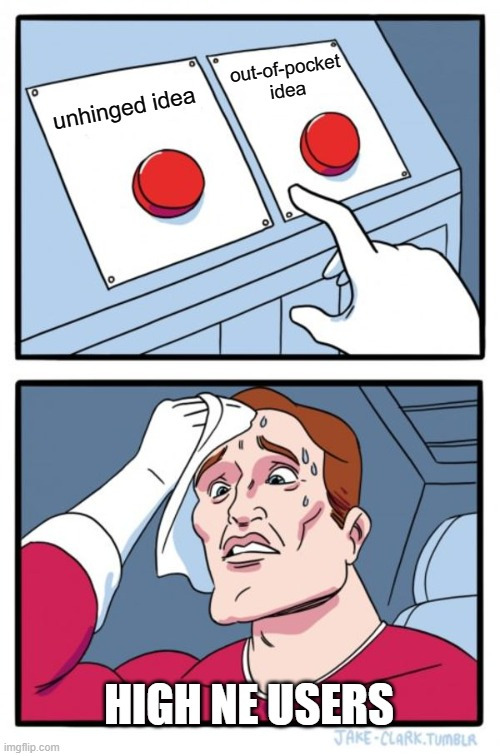
#mbti#mbti types#mbti personalities#intp#entp#infp#enfp#extroverted intuition#Ne#lmao just getting back into the swing of mbti memes dont mind me#just stretching the Ne muscles
26 notes
·
View notes
Text
INTP Ti - Si Loop
Explanation on an MBTI loop. Not an expert. May change later.
___
Loops in MBTI occurs when a type begins to cycle between their dominant and tertiary function, completely ignoring the auxiliary and inferior. This is mainly caused from stress and can be continous until finally broken.
___
INTP Function stack: Ti - Ne - Si - Fe
When in a Ti - Si loop, INTP is stuck trying to find answers from previous experiences. They can get trapped in constant rumination about the past as they try to find the answer(s) to their issue(s). However, this does more harm than good as they will start to fixate on their past mistakes. Overanalyzing the things they could and should have done will paralyze them into fear and self doubt. Can be very indecisive. Their overthinking will stump their Aux Ne from functioning properly, which can cause INTP to get trapped with certain routines and structures (even if it is not benefitting them). Without the help of Ne, a looping INTP struggles to form new ideas and perspectives. It makes it difficult for INTP to be innovative.
To escape the loop, an INTP needs to learn to utilize their Ne properly again. They can try to put themselves in new opportunities that will get their Ne to function; new opportunities will hopefully get INTP to explore new ideas and concepts. Brainstorm possible solutions to get their gears going. Learn to be more accepting of their own mistakes and failures, be more self compassionate.
___
MBTI Notes
#mbti#intp#mbti intp#intp personality#ti - si loop#mbti loop#typology#cognitive functions#myers briggs type indicator#myers briggs#intp loop#introverted thinking#extroverted intuition#introverted sensing#extroverted feeling
86 notes
·
View notes
Text
ENTP: I look at different aspects that could be linked to a situation or perhaps how it would evolve. But I wouldn’t be convinced that “it could be this or could be that, what if this or what if that, what about if this is something else.” I like to speculate on the results, except when it comes to my personal stuff like money and health. For these, I wouldn’t speculate and would prefer something stable.
I notice that I would suggest completely unorthodox or even radical solutions to other people's problems or situations, but I don’t know if I would follow my own advice in some aspects lol
————
Rob: Now *how* you approach problems, like educating, laying information out in a clear way, “what if this what if that,” suggesting radical solutions are all SiTi. So if NeFe is your skillset, SiTi is your set of instructions for how to build that harmony or that experience for others and yourself.
Si is a concrete proactive lens, it wants to see things clearly. All of the questions you ask are all essentially "Instructions unclear, can you clarify this..." There needs to be that a-ha! dot-connecting moment in your brain to get that little dopamine your Si needs. And it's a microscope, so it wants to see all of the little details and seek many perspectives even if they're a tiny bit different from each other. That proactivity is what allows you to be a step ahead.
Some ENTP have such a strong SiTi, they always have that thirst to be the one who understands the situation more than everyone else. And it's thanks to going over every a little Si angle that allows you to get into a situation without exactly knowing how something will happen (Se) but at least you have an general idea (Ne) and you wouldn't be exactly surprised. Like we never really know how a new baby born will look like, but we got an idea based on how the parents looks like. It'd be a crazy surprise if the baby didn't look like them lol
The thing about SiTi is that it's still theoretical. So yes, the math checks out, but you might've never seen it happen before. And that can be unorthodox, and it's maybe more of a suggestion then advice. But Si is curious enough to see it happen anyway.
That curious thirst can feel out of your control though, sometimes you'd be so curious and it latches onto your mind that that's the only thing you think about, and then next day it can be totally gone, or it wants you to be curious about something else.
15 notes
·
View notes
Text
Extroverted Intuition (Ne) and Introverted Intuition (Ni) are two cognitive functions described in Carl Jung's theory of psychological types. These functions play a significant role in how individuals perceive and process information. How does Extroverted Intuition compare to Introverted Intuition?
1. Direction of focus:
- Extroverted Intuition (Ne): Ne is directed outward, focusing on possibilities and connections in the external world. People with Ne tend to explore multiple perspectives, ideas, and options. They often see patterns and connections in the environment and are open to new experiences and opportunities.
- Introverted Intuition (Ni): Ni is directed inward, focusing on internal insights and patterns. Individuals with Ni have a deep sense of knowing or hunches about the future and underlying meanings. They often have a strong intuition about what will happen or what something signifies.
2. Information processing:
- Ne: Individuals with Ne are excellent at brainstorming, generating ideas, and making connections between seemingly unrelated concepts. They often see the big picture and are quick to identify possibilities and alternatives. Ne users may struggle with focusing on a single idea or following through on specific plans.
- Ni: Ni users excel at synthesizing complex information and distilling it into a core concept or vision. They have a knack for seeing hidden meanings and understanding the underlying essence of things. Ni users may struggle with explaining their insights to others or providing concrete evidence for their intuitions.
3. Time orientation:
- Ne: Ne tends to be future-oriented, constantly seeking new possibilities and potential outcomes. It thrives on exploring what could be and is often energized by change and novelty.
- Ni: Ni is often characterized as having a future-oriented focus as well, but it also incorporates a sense of the past. Ni users may draw on past experiences and patterns to gain insight into the future.
4. Communication style:
- Ne: Ne users are typically enthusiastic communicators who enjoy sharing ideas and engaging in brainstorming sessions. They may jump from topic to topic, exploring different perspectives and possibilities.
- Ni: Ni users may have a more reflective and contemplative communication style. They tend to share insights and intuitions in a concise and focused manner, often conveying a sense of certainty or conviction.
5. Relationship to details:
- Ne: Ne users generally enjoy exploring the details and possibilities within a given context. They may become easily bored with routine or repetitive tasks and prefer to keep their options open.
- Ni: Ni users often focus on the underlying meaning or significance behind the details. They may have a tendency to overlook or dismiss specific details if they do not align with their overall vision or intuition.
The extent to which a person relies on Ne or Ni depends on where it is in the cognitive stack.
10 notes
·
View notes
Text

6 notes
·
View notes
Text
Whenever I'm tempted to doubt my mbti type, I end up having a conversation where I find the incredibly obscure point of intersection between two completely irrelevant things and end up having to explain in the shortest time and least number of words possible what baby yoga and enriched cereal could possibly have to do with each other
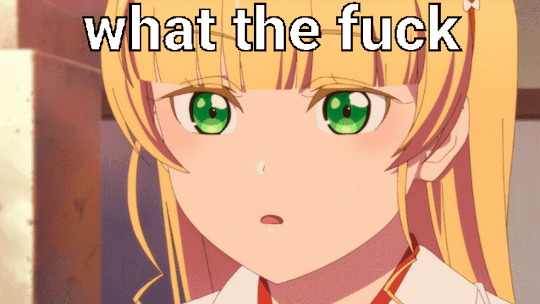
4 notes
·
View notes
Text
Ne Potentiality

Ne is a function that absorbs objects in realtime (Pe), then extrapolates (N) new objects from their indiscriminate recombinations. Like finding a ten-dollar bill on the street opens up a spectrum of possibilities for what to do with the money, a possibility space opens up around the objects Ne registers. Ne seeks unconventional ideas for what objects can transform or recombine into in this space. As the recombinations become more unconventional, their capacity to generate even more novel association chains increases, diverging ad infinitum.
Daydreaming
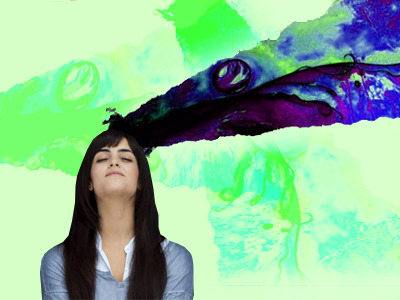
The Ne function is motivated to discover new information by absorbing it from the outside or synthesizing it from existing datasets through creative alchemy. It is highly imaginative, which is to say images and information structures of all kinds drive it. However, these images are not immediately evidenced in the environment but are all the environment evokes by containing an adjacent graphical relationship to the present. When faced with a situation, the Ne user will only casually consider the literal objects before them as their mind soon drifts up, around, and behind those immediate objects to uncover that moment's visual and conceptual implications. They quickly leap beyond the physical world and become lost in their heads, conjuring up novel ways to interpret situations as they unfold. They have a talent for manipulating information spatially and relationally, fitting together ideas that are otherwise largely disconnected. They may compare periodic table elements to music bands or entertain improbable "What if…" scenarios for fun. As children, they may be absentminded daydreamers who are oblivious to their surroundings and caught up in a self-made world of equal parts fiction and reality. The domain of their imagination can be far more interesting than whatever is happening in the outer world. Some may nurture this world with stories they make up, complete with characters, landscapes, and perhaps an entire legendarium.
Lack of Attention

However, the time the Ne user spends in their head often translates to time not spent in reality. Far more than the average student, they will be prone to space out in class and be unable to get through long texts or any tasks that require a very slow or arduous pace. Their perception of the world outside their interests will be faint, hazy, or splotchy. Should something not be particularly rich in associative potential, the details of objects in daily life will soon fade, leaving only their general impression as an after-image in their mind. When listening to others, as they are absorbing the person's words, one word will trigger a mental tangent midway, and they will pursue it curiously at the loss of what else the other person is saying. They can live a klutzy existence, tripping on objects, wearing mismatched clothes, losing things, and forgetting appointments regularly. However, despite this exterior inattentiveness, internally, they may experience quite a hyperactivity of thought. Far more is happening within than without, which can cause troubles such as over-thinking, excessive worrying about outcomes, or not getting a good night's sleep from an inability to slow down their mental chatter. They may find it challenging to keep a steady mental pace and can often be diagnosed with ADD, ADHD, or Sensory Processing Disorder. Reality can register to the Ne user as a series of information flashes that are somewhat spontaneous in nature and channel from every previous dataset collected in the unconscious.
Mass Data Absorption

Jarring as it may be to be inundated by sporadic correlative flashes, it can also be incredibly stimulating and addictive to be experiencing this imaginative feed constantly. A small rush or high may be felt every time a new idea pops into awareness. The Ne user will thirst after that realization; the sensation of novelty or curiosity intrigue. Moreover, when Ne is powerful, they seek this experience with undying fervor. They will become media junkies, often binge-watching entire seasons, rushing through novels and games, or going on researching sprees for days or weeks on end. A slowdown of volume, or a lack of things to absorb, can lead to feelings of stagnation, hollowness, and absence of thriving. As such, their impulse will be to pick up something else right after finishing the last thing, needing to have some form of interest always in mind. However, this can be problematic if they find themselves more engaged in the endless flux of information than in the information itself. Despite vast amounts of information entering, much may be going in one ear and out the other. A perpetual challenge for the Ne user will be to be more targeted in their attention and sink deeply into a few topics rather than spread themselves thin across dozens of topics. Moreover, when they learn to channel their focus toward a single direction, they can become overnight experts on subjects, memorizing every minute detail about a favored hobby, genre, pop idol, science experiment, or trivia category.
Serendipity & Flash Visions
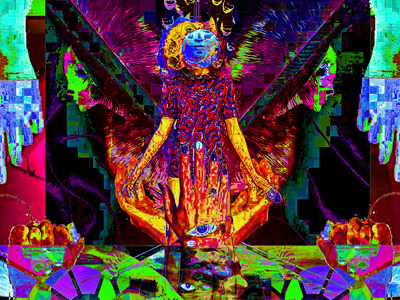
The Ne user's capacity to synthesize such high volumes of information sometimes leads to spooky insights, uncanny realizations, and predictions of the relevant situation. Suddenly, a vision may flash before their eyes, stitched together from hundreds of unconscious micro-correlations accumulated around this moment, converging into one instance in time can lead to a semblance of clairvoyance where the Ne user attains some knowledge into the unseen causalities of the universe. They may come to trust this sense deeply whenever they feel it manifest. However, these sudden flashes will not represent a stable ability, and their appearance will be as unpredictable as their inspiration. In other cases, this can produce a habit of serendipity where the individual participates in a cosmic flow towards meaningful happenstances by consciously or unconsciously directing their energies toward those vectors. The Ne users will attune themselves to the realtime synchronicities of the universe, ebbing and dancing in harmony with an eternally unfolding fractal towards undiscovered lands. At a more modest scale, the Ne user's information synthesis will regularly evoke epiphanies when various information vectors -- previously suspended in an unconscious superposition -- click into alignment and burst forth immediate realizations that alter the fabric of their mind and paradigm. In all of these cases, the Ne user is rapidly altered -- seemingly by a divine act -- into a more accurate alignment with reality as it may exist at the broadest scale possible.
Tinkering

At a much more practical level, the strong Ne user is driven to absorb and synthesize information and actively participate in the information-collecting process. They will enjoy engaging with elements of reality through tinkering and experimentation. Over a few household devices may be taken apart as they yearn to see what is inside. They may take up a variety of interests ranging from sculpting to rock collecting, music composition, cosplaying, animation, voice acting, puppeteering, and ventriloquism – but will rarely become experts at any of them. As a jack of all trades and master of none, they will dabble with mediums frequently. However, they may find themselves changing hobbies every few years, which can also cause a great deal of disarray in their personal lives as they soon lose interest in a once-beloved life trajectory. Repetition is among their biggest turn-offs, and this can also lead to a life-long struggle with keeping a set occupation unless the Ne user is fortunate enough to find a job as dynamic and evolving as their interests. They enjoy being on the cusp of understanding and seeing what lies beyond their reach. Over time, every interest they have ever had has the potential to reignite itself in them spontaneously. On a whim, they may circle back to a hobby after having packed it up in the garage for years or decades and continue their joy for it as if no time had passed. Indeed, they often have closets or garages filled with various unfinished hobbies or projects - waiting for an occasion to become the center of their attention.
Puns & Quirky Humor

The Ne user will also have an integral sense of humor and bring it into their interactions. They can convert their wild imaginings into out-of-context parallels, comparing a person’s gait to a limping platypus, an unusual jawline to a can opener, or a shih tzu to an animated mustache. They will juxtapose ideas in absurd and off-the-wall ways and highlight the unseen peculiarities of things. The Ne user will have a natural drive to spark the environment and provide levity and life to situations and their lives. Life is too dreary if you cannot have a little fun. Wordplay can be a favorite medium of humor, where they will manipulate the semantics of the situation to make puns and associations. "Oh, you can sit here with me; chairing is caring!" or "That omelet was egg-squisite! But the bacon was hogwash" or spoonerisms like "I am stoing to the gore" may be commonly heard phrases. This sense of humor can lead many Ne users into stand-up comedy or adopt a role as a talk show host for their ability to improvise and keep a conversation going in unexpected directions.
Imitations & Parodies

The Ne user will also have a playful tendency to parody multiple characters and scenarios in realtime. A particular event or external sound/word will trigger an association chain that reminds them of a scene or meme, and their mind instantly re-enacts the mental and physical memory. The Ne user wears many hats and might be a walking record of enactments, ready to sprint into their acting mode immediately. They will manifest this in the form of "mini-skits" that imitate the iconic qualities of a thing. The Ne user may be an expert at playing with their facial muscles and making various expressions. They may also excel at modulating their voice tone, picking up and repeating accents from movie stars or obscure demographics. At a more functional and less recreational level, the Ne user can be adaptive and construct personas in social situations. Suppose they are driven to assume a specific professional or social role. In that case, they may seamlessly be able to play the part, which can sometimes become a longstanding act, as they use the persona for months until the Ne user may even forget that they assimilated or constructed the character in the first place.
-Behaviors Under Stress
Distraction & Escapism

When the hardships of life cause a fall out of emotional health for the Ne user, their first instinct will be to divert their attention away from the overwhelming pain. Humor, recreation, and consumerism will be exercised as an antidote to their pain, often leading them to engage in reckless spending and jovial displays and to seek out more risky experiences. On the inside, the Ne user will be viscerally compelled to stay on the run by avoiding their anxieties and fears. They will feel unable to stand up to the full magnitude of their despair, and rather than have it crush them, they choose to highlight or exaggerate positives and downplay or ignore the magnitude of any negatives. They may also become immersed in a specific media, binge-watching Netflix or playing video games instead of tending to pressing responsibilities. Despite a fully conscious awareness of the necessity of specific actions, the more pressing a responsibility is, the more their mind will fight powerfully to avoid it, disallowing proper mental focus and follow-through. The Ne user will conflict with their mind as it struggles to do anything but what it is supposed to do. Therefore, rather than address the issue head-on, the stressed Ne user may skirt around the problem, find something more magnetic to focus on, and wait for the project, assignment, or relationship to fail.
#Cognitive Typology#Cognitive Functions#Extroverted Intuition#Ne#ENTP#ENFP#Behaviorism#Potentiality#Daydreaming#Lack of Attention#Mass Data Absorption#Serendipity#Flash Visions#Tinkering#Puns#Quirky Humor#Imitations#Parodies#Distraction#Escapism#Puer Aeternus
18 notes
·
View notes
Text
Type of shit I be on when I'm feeling sleep deprived and esoteric
#esoteric#jester#schizoaffective#enfp#extroverted intuition#archetypes#psychedelia#relatable#comedy#humour#entp
0 notes
Text
I'm tired of being a loud person. I'm retiring from speaking. I'm done with it
0 notes
Text
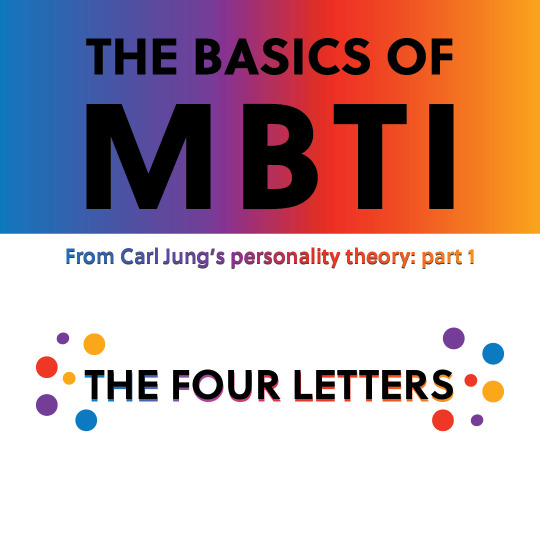

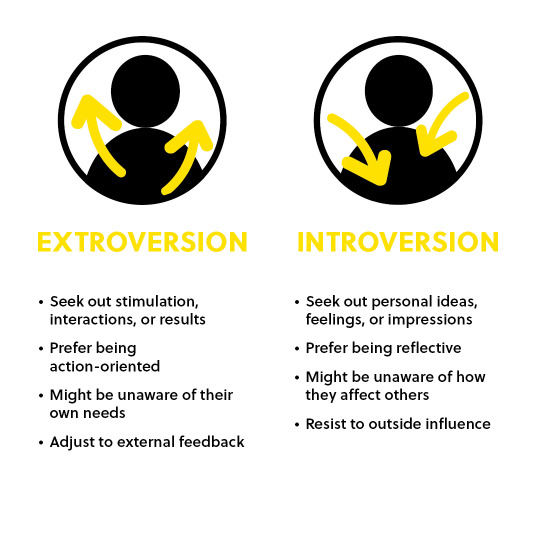




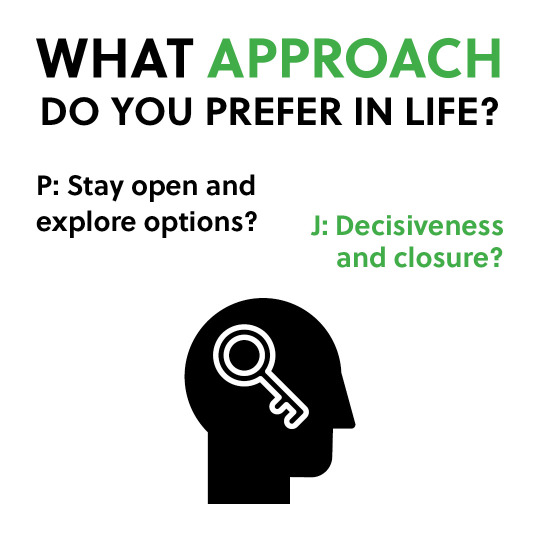



THE BASICS OF MBTI (from Carl Jung's personality theory - part 1)
THE FOUR LETTERS :
(E)XTROVERSION vs (I)NTROVERSION
(S)ENSING vs I(N)TUITION
(T)HINKING vs (F)EELING
(P)ERCEIVING vs (J)UDGING
-----
In the next post, we’re going to talk more in-depth about different categories of Intuition, Sensing, Feelings and Thinking called: Cognitive Functions.
#personality#personality theory#self growth#psychology#personality types#mbti#typology#carl jung#ESTJ#ESFJ#ESTP#ESFP#ISTJ#ISFJ#ISTP#ISFP#ENTJ#ENFJ#ENTP#ENFP#INTJ#INFJ#INTP#INFP#introvert#extrovert#sensing#intuitive#thinking#feeling
241 notes
·
View notes
Text

When Shit Happens
MBTI
#mbti#myers briggs#psychology#intj#intuition#intuitive#introvert#extrovert#infj#entj#istp#estp#esfp#enfj#estj#esfj
14 notes
·
View notes
Text









ENTP - The Debater ⚖️
#moodboard#aesthetic#aesthetic moodboard#entp#entp personality#entp things#entp mbti#mbti#extroverted#intuitive#thinking#prospecting#the debater#analysts#analysts series#mbti series
67 notes
·
View notes
Text
ATEEZ Wooyoung MBTI Analysis
- ESFP -
An in-depth analysis of an idol's MBTI type. Based on my opinion and observations, may change later. Not an expert.

ESFP (Se - Fi - Te - Ni)
Dom: Se (Extroverted Sensing)
A perceiving function that uses our 5 senses to process the external world.
Wooyoung is always aware of the present moment, quick to react and to take action. He also pays attention to physical things such as aesthetics, the visuals of the performance, the way he looks, etc physical appearances matter a lot to him.
He enjoys photography and videography, which are pretty good activities for Se - it allows him to use his senses to make visually stimulating images and videos. Physically engaging activities seem like the best way to energize him e.g cooking and riding a bike. Cooking is great for his Se as it engages with all his senses - all the movement in cooking, tasting the foods, the aromas, watching the food cook, plating, maybe he enjoys hearing the sounds of food cooking as well and/or the way kitchen tools slightly hit each other (e.g knife on a cutting board).
This moment especially was an incredibly Se dom moment. Comparing it to Si user Jongho (Si has to step back and assess first), being the Se dom he is, Woo just went for it.
Aux: Fi (Introverted Feeling)
A judging function that uses one's own values and belief to compare and make choices
As Fi wants to be authentic, that is what Wooyoung always strives for - he always wants to express himself well, to be real. He wants people to like him for him. He returns the same gesture with others - he wants to know the real version of others. Wooyoung tries not to make assumptions at first meet since he knows he will not learn everything just from one encounter. He seems very empathetic.
Tert: Te (Extroverted Thinking)
A judging function that uses established facts and systems to make objective, working decisions.
He's quite goal oriented and takes time to plan to achieve these goals, even if it's not the most detailed. Either way, he knows how to get what he wants and works hard to reach his achievements.
Wooyoung lays down the rules as well - Te can be by the book, which Wooyoung can be sometimes. E.g when he was explaining how he found it rude when juniors would not put in the effort to correctly bow down to him and other senior artists. Wooyoung has a strong belief in being humble and kind (Fi) and wants to implement this in everyone.
Inf: Ni (Introverted Intuition)
A perceiving function that uses one's own personal insights and ideas
In his episode of "Fill in the Blank" series, Wooyoung said he wanted to use dance to convey deeper messages and emotions for others. He wants to be a sense of comfort, the light in other's darkness. He has always wanted to make an impact on others from a young age, especially considering how much he values relationships.
___
Why is he not an xSFJ or ISTJ
Both types use Si - Ne, which I do not see in Wooyoung at all...xSFJ's Fe is understandable, but Wooyoung is sometimes a bit too straightforward and honest to be using Fe in his main stack though lol.
And ISTJ just does not make sense in general for him.
___
Other analysis:
Enneagram | Birth Chart
___
Kpop typology list
#wooyoung#ateez wooyoung#ateez mbti#mbti#jung wooyoung#kpop#typology#kpop mbti#cognitive functions#myers briggs type indicator#ateez#myers briggs#esfp#esfp mbti#extroverted sensing#introverted feeling#extroverted thinking#introverted intuition#mbti analysis
42 notes
·
View notes
Text
Here’s the old one:
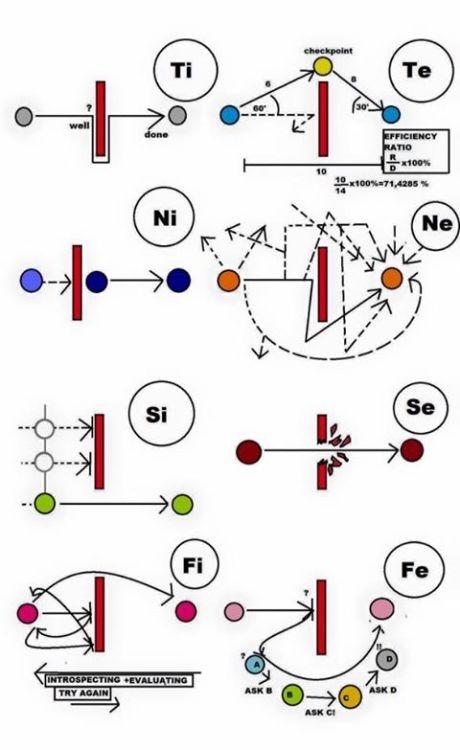
Now here’s the fixed one:
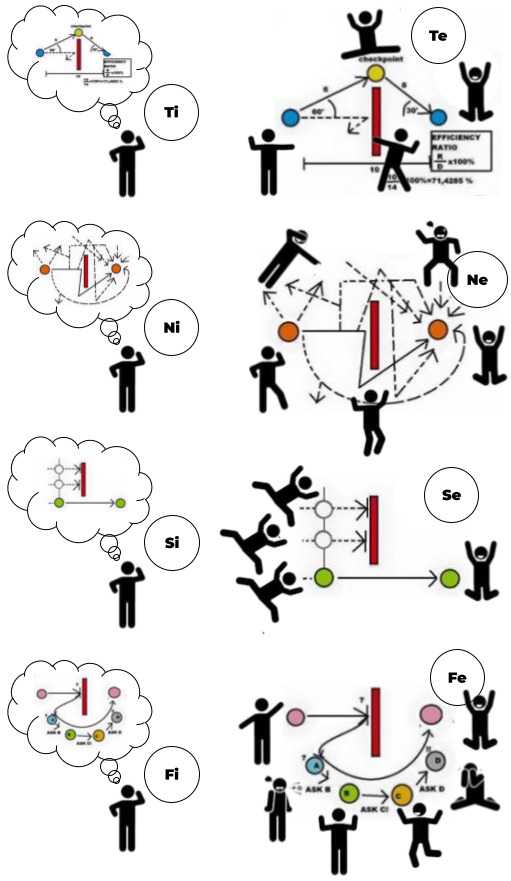
Now allow the functions working together in a type.
What would be in an INTP's mind with TiSi, how do they get the foresight to get to the other side in one shot? Is FeNe like getting people to buy in?
What about an ENTJ? How do they figure in hindsight so they'll get it one shot next time? What are they asking themselves with FiNi?
#intp memes#entj memes#cognitive functions#introverted intuition#introverted sensing#introverted thinking#extroverted thinking#extroverted sensing#extroverted intuition#entj#mbti#intj#estj#isfp#istj
19 notes
·
View notes
Text

0 notes
Text
My sister came to stay for a few days. At one point it amused me how she, me and my dad were sat at the kitchen table having coffee and totally silent. I said 'hmm how introverted of us!'. Happily silent together. To outsiders it might look pretty strange, like we'd fallen out or something.
The prior evening my sister and I went to see our mutual friend David and his boyfriend. David is extroverted and I think his man is too as there were no silent moments and it gave me contrast which is what this realm is all about. :)
#interaction styles of introverts and extroverts#and then combination#my sister as a sensor not an intuit was good at keeping up with the extro banter#I just sat back and mostly listened.
2 notes
·
View notes